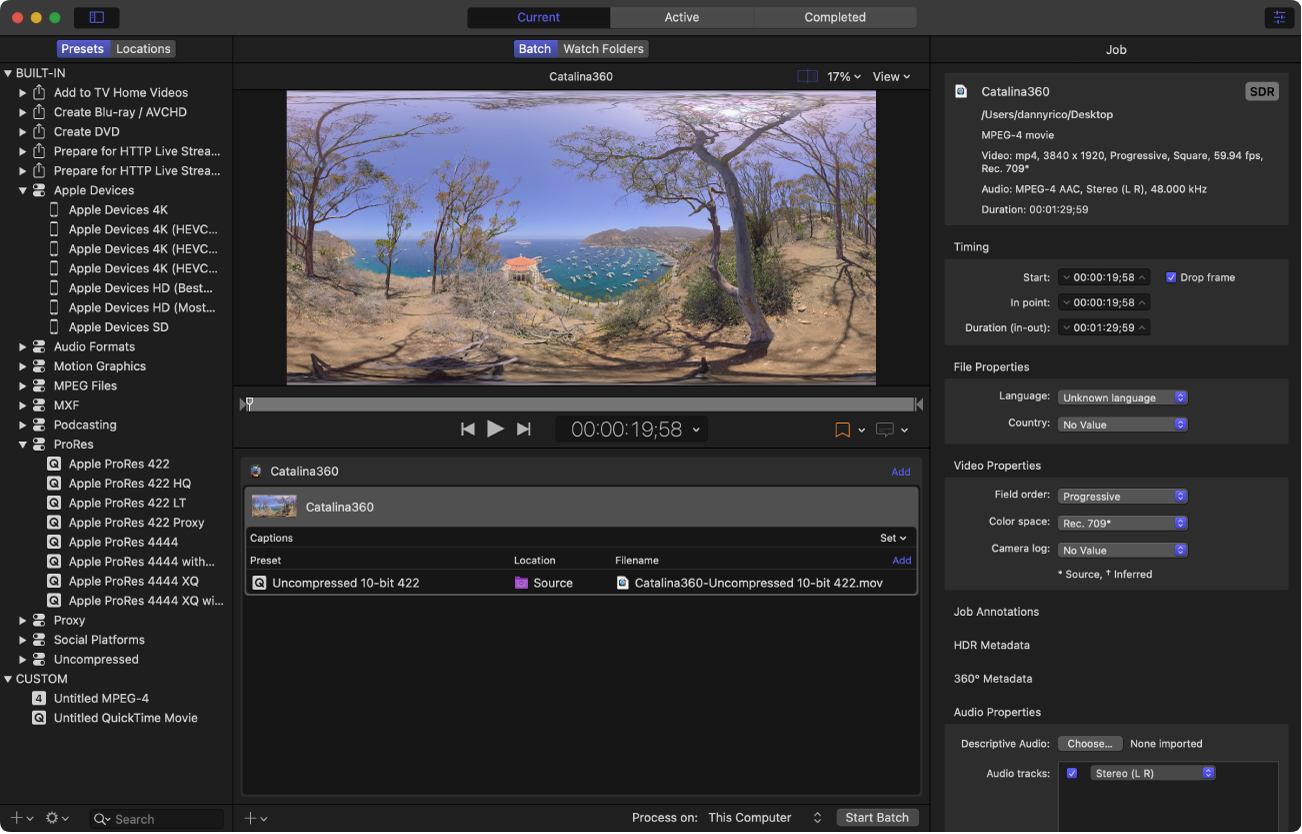
Intro to Compressor 360° video

Compressor offers tools that let you prepare existing 360° video content (such as content edited in Final Cut Pro) for export and distribution to sharing sites like YouTube and Vimeo.
360° video (sometimes called spherical video) is footage captured by special cameras that point lenses in all directions to create a panoramic sphere of video. A viewer can watch 360° video in any of several ways:
Through a virtual-reality (VR) headset: This hardware device displays video on a face-mounted screen that’s updated dynamically to show different parts of a scene as the viewer turns their head. Some VR headsets can also display stereoscopic (3D) 360° video, enhancing the immersive experience.
In a rectangular window: This viewing method is used on a smart phone, tablet, or computer. The viewer scrolls the window to see different parts of the scene.
On a standard display: This viewing method, with the audience unable to control viewing angles, is similar to watching conventional video, with the added benefit of giving the filmmaker more options for angle choices during editing.
For 360° video content, Compressor acts as a finishing tool that lets you:
Add or modify the 360° video metadata used by VR headsets and other presentation devices to display the video in the correct spatial format (including monoscopic or stereoscopic mode)
Export the finished video as a media file ready for distribution, or upload it to a 360° video sharing website such as YouTube or Vimeo
Note: Compressor is not an editing tool for 360° video. To “stitch” the separate camera views together, you must use the 360° camera manufacturer’s software. To assemble a sequence, you must use a 360° video-capable application like Final Cut Pro. See Final Cut Pro User Guide.
Download this guide: PDF